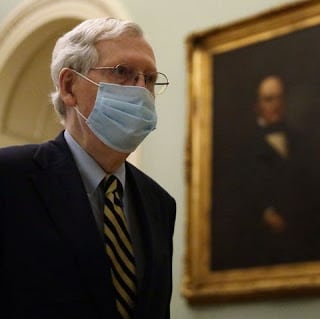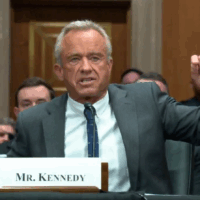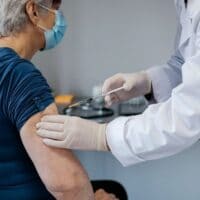“Several new studies published this month support wearing masks to curb the transmission of the novel coronavirus,” The Washington Post reports. The broadest piece of research “concluded that data from 172 observational studies indicate wearing face masks reduces the risk of coronavirus infection.”

Masks appear to work best when coupled with hand-washing and physical distancing, said a review of reports by epidemiologist-physician Holger Schünemann and his colleagues at McMaster University in Ontario. “Most studies in the review analyzed face masks in hospitals or other medical settings, and some took place in households where an infected person lived,” the Post reports.
This was, of course, nothing new to infectious-disease specialists, but it comes at a time when “partisan interests sew symbolism and controversy into masks” and scientists are trying to see just how effective masks are, write Post reporters Ben Guarino, Chelsea Janes and Ariana Eunjung Cha.
Being exact will be difficult. “The gold standard in science — a randomized, double-blinded controlled trial — is impossible to conduct in a pandemic,” the reporters point out. So, researchers collect information from many small, observational reports, which are generally uncontrolled and subject to outside factors that may or may not be measurable.
That’s what the Ontario researchers did. “Our findings suggest, in multiple ways, that the use of masks is highly protective in health-care and community settings,” they wrote, but added, “We have low certainty in that.” That means “the authors cannot be strongly confident in the result,” the Post explains.
The Ontario review was funded by the World Health Organization and published in The Lancet, a British medical journal that is probably the world’s most respected.
Jeffrey Shaman, an epidemiologist at Columbia University, told the Post that South Korea, Taiwan and Vietnam, which had high rates of mask use early in the pandemic, “have had better success squashing the virus and keeping their economies going.”
People who wear masks are protecting themselves less than they are protecting others; they can have the virus without knowing it, and still spread it simply by breathing. Thus, masks are the critical element in controlling spred of the virus, said Werner Ernst Bischoff, a Wake Forest University infectious-disease professor who is known for his studies on respiratory transmission of viruses.
“When you are going about in the course of normal activities like breathing, talking and singing, you expel these particles into the environment,” Bischoff said. “You want to create a seal.”
Some Republican legislators “have criticized mask mandates as evidence of government overreach, and some have branded those wearing masks as weak,” but others in their party reject that view. Senate Majority Leader Mitch McConnell wears a mask, and said in late April, “Practice social distancing and don’t be stigmatized by wearing a mask. It doesn’t necessarily mean you’re sick; it means you’re concerned about others.”
Andrew Noymer, a University of California-Irvine professor of population health and disease prevention, told the Post, “Most of anti-maskers seem to be politicians who do not have scientific experience.”





